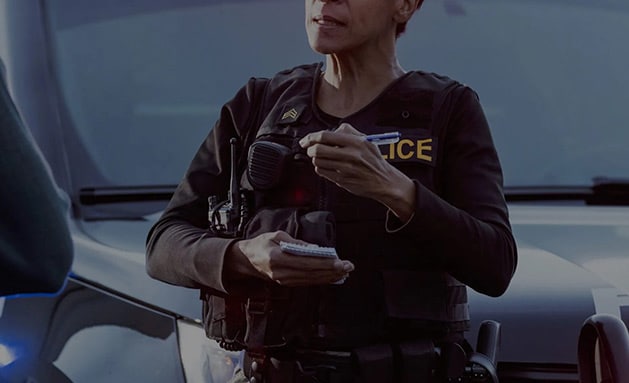Knowing how to read a police accident report and understanding the laws surrounding them are crucial aspects to your accident claim. Many insurance companies require a police report before you can even file a claim. It is also vital that you get the police officer’s account of the accident especially if you’ve endured injuries or property damage.
In Texas, you can obtain your police report from the Texas Department of Transportation. Keep in mind, however, it can take anywhere from a few days to a few weeks to obtain your police report. If you face any obstacles getting your report, hiring an accident attorney can be a great first step to getting the ball rolling.
A police report starts with the date, time and location of the collision. It should indicate if it was on a street, highway, parking lot, construction zone, school zone or other area.
An accident report will also note if the crash had a fatality and if a school bus or commercial vehicle was involved. If an 18-wheeler or other commercial vehicle was involved, other details will be added to the accident report, including the vehicle’s size, weight, cargo and owner.
Why Do I Need the Police Report After a Car Accident?
Winning a car accident case often means proving that someone else caused the crash. This can be tricky, especially if the other driver refuses to acknowledge their fault in the accident.
However, this is where police reports can become your most valuable asset. These reports often contain valuable evidence, and this can be the difference between winning or losing your case. These accident reports can include information like who was involved, when and where the accident happened, as well as any witness statements gathered by the police.
The accident report may also note if the other driver was ticketed. If they violated a traffic law leading up to the crash, that’s strong evidence in your favor. This kind of information can help you build a case and hold the at-fault driver accountable for the harm they caused.
What Details Are on a Texas Accident Report?
Vehicle Information
Vehicle and driver information should include:
- The vehicle’s license plate number and issued state
- The vehicle’s VIN, or vehicle identification number
- The vehicle’s color, year, make, model and body style
- Estimated damages to the vehicle
- If the vehicle was towed, who towed it and the location where it was towed to.
Driver Information
Driver information in an accident report should include:
- Each driver’s name, address and phone number
- Driver’s license details for each driver, including the type of license (commercial or private), driver’s license number and state
- The occupation and ethnic background of each driver
- Proof of financial responsibility (otherwise known as car insurance)
A police accident report also should note if a sobriety test was given to a driver for possible alcohol or other drug use, the kind of specimen taken, and the results of the test. If charges were filed, that may also be noted.
Passengers
Along with the name and badge number of the responding officer, police accident reports should also list details on the passengers and even bystanders at the scene of an accident. Passenger information should include:
- Whether a safety restraint was used, and if so, what kind
- Seating position
- If the passenger was ejected from the vehicle
- The seriousness of a passenger’s injuries
For injuries suffered by drivers, passengers or bystanders in a collision, the report should list where the victims were taken.
Police Opinions in an Accident Report
It’s important to understand that police officers are rarely eyewitnesses to the accidents they investigate. Instead, their conclusions for the accident report are based on the evidence at the scene. This evidence might include witness statements, damage to vehicles, and skid marks on the road.
Their report will give a written description of how they believe the accident happened. This could cover factors like speed, who had the right of way, and even the possible involvement of distractions like cell phones.
Sometimes, an officer’s conclusions are even accompanied by a simple diagram to illustrate their interpretation visually. This picture, like their written assessment, is not a guarantee of exactly what occurred, but rather their best understanding based on the available information.
What Can I Do If the Accident Report Is Wrong?
Mistakes on an accident report can have serious consequences. A skilled car accident attorney can help you identify and correct these errors.
For instance, your report might contain an inaccurate description of the accident itself, or wrongly assign fault. Additionally, the way your own injuries are coded could directly impact the amount of compensation you receive from the insurance company.
Don’t take these details lightly. Insurance companies will use the police report against you if it contains errors. A knowledgeable attorney can review the report, spot any issues, and help make sure you get the fair compensation you deserve.
Our Attorneys Can Help You with Your Case
If you need help after a car accident, our law firm has over 50 years of experience in getting Texans the justice they deserve. Remember, our consultations are ALWAYS FREE. Call us or send us a message today.





